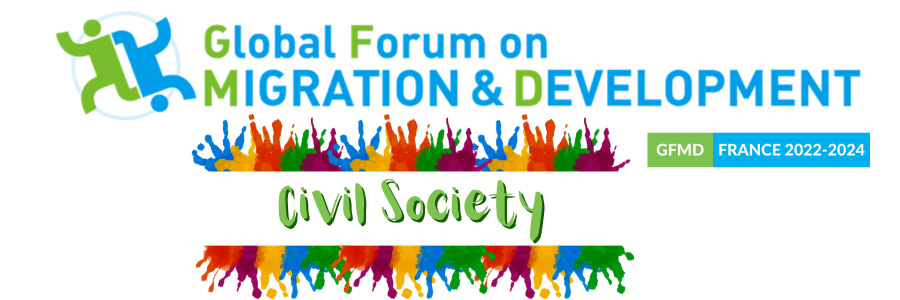Better data, concerted international action and social protection identified as key in fight against wage and benefit theft.
On 18 January 2021, the second Side Event of the 13th Global Forum on Migration and Development (GFMD) Summit highlighted non-payment of wages and benefits to migrant workers. It was unique in the GFMD agenda, being the only side event organized by civil society organizations (Migrant Forum in Asia and the Council of Global Unions).
Framing the issue, event chair William Gois of Migrant Forum in Asia emphasized that the issue of wage theft is “not about charity or humanitarian provision; it’s about wages that have been earned by and are due to workers.”
Gois noted the lack of data to support effective policy responses in this area. His analysis was echoed in the appeal to civil society by Ellene Sana of the Center for Migrant Advocacy to “do our homework” by collating and disseminating data evidencing instances of wage theft and non-payment of benefits. Gois agreed that data collection will not be a short-term task but is a crucial step in ensuring that the issue can move beyond the case level and be dealt with more systematically. Lara White of the International Organization for Migration similarly highlighted how better data collection could improve understanding of the root causes of wage theft, noting “it could be business failure, it could be opportunism, or both; we just don’t know.”
Gois also identified the lack of collective representation and freedom of association of many migrant workers as barriers, both to understanding the phenomena of wage theft at a systemic level and for migrant workers to obtain legal remedy. While acknowledging insufficient data, Ryszard Cholewinski of the International Labour Organization described how many wage complaints are collective in their nature, often involving hundreds or thousands of workers employed by the same company. He highlighted how such cases are best resolved through robust worker representation and collective bargaining, both of which are limited for migrant workers.
“Take the opportunity to do things the right way – this cannot again be a race to the bottom.”
Ellene Sana, Center for Migrant Advocacy
Several speakers highlighted the need to consider wage theft and non-payment of benefits in the wider context of the multiple challenges faced by migrant workers. Cholewinski outlined how legal redress for non-payment is “tied up with the need to provide fundamental human rights and labor rights to migrant workers,” and the challenges for access to justice where these rights are not guaranteed. Sana noted the lack of legal clarity for undocumented migrant workers waiting for wages in country of destination, and the need for “whole-of-society and whole-of-government approaches” that ensure social protection for undocumented migrant workers while they seek legal redress. Hanspeter Wyss of the Swiss Agency for Development and Cooperation similarly highlighted the absence of social protection for many migrant workers, and their subsequent intensified vulnerability due to COVID-19.
Hon. Barrister Shameem Haider Patwary, Member of the Bangladeshi Parliament, Bangladesh, highlighted the lack of an international mechanism to register and pursue cases of non-payment of wages and benefit. He highlighted the benefits of a transnational approach, including for issues such as compensation, and the crucial nature of longer-term support for migrant workers returning to countries of origin following wage theft.
Sana reminded delegates of the extensive impact on Gulf migrant workers of the 2016 oil price crisis, many of whom were victims of non-payment of wages and end-of-service benefits, and emphasized the benefits of drawing on experiences of this kind to form and advocate for effective contemporary responses, highlighting in particular diplomatic representations by countries of origin in support of wage and benefit payment. She concluded by highlighting the importance of engaging governments via existing frameworks for dialogue, urging delegates to “take the opportunity to do things the right way – this cannot again be a race to the bottom.”

